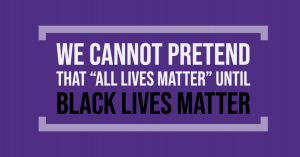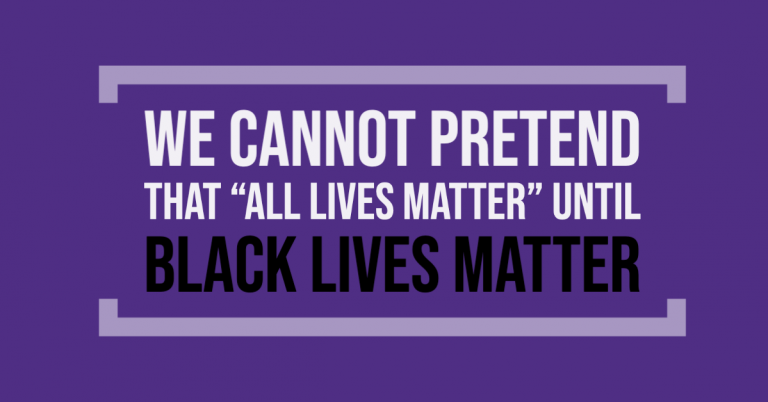Standing Against Systemic Racism and Violence

As writers and students of writing, we recognize the immense power in language to assuage fear, to bring comfort, and to make sense of troubling times. But we also know the ways that language can be used to demean and belittle human beings, to stoke prejudice, and ultimately to incite violence.
The University Writing Program and the University Writing Center condemn unequivocally the recent, brutal murders of African Americans in the United States. We speak their names — Ahmaud Arbery, Breonna Taylor, George Floyd, Tony McDade, Sean Reed, David McAtee — and we recognize that they are only some of the most recent lives lost to prejudice, victims to the language of hate and racism that continues to exist at the core of American culture. We cannot pretend to claim that “all lives matter” if we do not recognize that Black Lives Matter.
We condemn the use of language to promote and encourage racism.
We condemn the resurgence of white nationalism in the United States.
And we remain committed to educating ourselves and to working with students, faculty, and staff at East Carolina University to build a better world.
We affirm our shared values and ongoing commitments to social justice and anti-violence, which are rooted in the eight promises of our mission statement:
- To educate ourselves on social justice issues and partner with student organizations, campus departments, and community partners
- To explore the social implications of language
- To discuss cultural competence and inclusive practices in writing and beyond
- To empower everyone as writers with distinct voices and social identities
- To create a space that encourages self-expression and critical thinking
- To challenge writers to substantiate their beliefs with evidence
- To adapt to the needs of writers during a session
- To respect all beliefs and backgrounds
To enact our ongoing commitments to these practices, the UWC does not provide assistance on writing that incites abusive or violent responses from its audiences. Our vision to create individualized learning experiences for each writer and to cultivate an inclusive writer community across all of our campuses requires us to be actively anti-racist.
We welcome the opportunity to join others on campus and in our community to consider carefully the language we use and the ways we use language to frame what is happening on our campus, in our community, and throughout our country and the world; to be mindful that our linguistic choices affect our social realities and communicate our values to ourselves and to others; to remain accountable for how our language choices may promote peace or encourage violence; and to use both our language and actions to promote peace, extend mercy, and demand justice.
In alignment with our mission to educate ourselves and others, we share with you some organizations, resources, and authors that have been important in shaping our ongoing understanding of social and restorative justice:
- Black Lives Matter
- Campaign for Equal Dignity
- Being Antiracist
- Anti-Racism Resources
- The Black Light Project
- Supporting Black LGBTQ+ People (Center for Black Equity)
- Me and White Supremacy (Layla F. Saad)
- “Why You Need to Stop Saying ‘All Lives Matter'” (Rachel Cargle)
- “Shine Brighter Together” Podcast (Monique Melton)
- “Check Your Privilege” (Myisha T)
- From #BlackLivesMatter to Black Liberation (Keeanga-Yamahtta Taylor)
- How to Be an Antiracist (Ibram X. Kendi)
